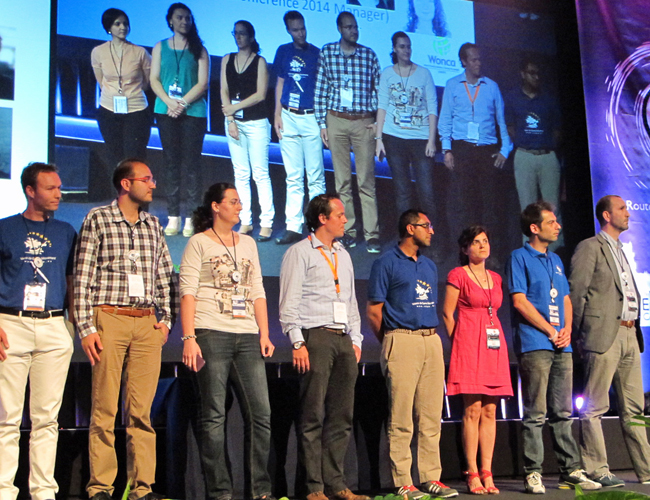Policy bite: Why celebrate young doctors?
 Photo: Vaco da Gama Movement executive members (outgoing and incoming) at the recent Lisbon conference
Photo: Vaco da Gama Movement executive members (outgoing and incoming) at the recent Lisbon conference
español
The recent WONCA Europe conference in Lisbon marked the wonderful occasion of the 10th anniversary of the Vasco da Gama movement – the European young family doctors’ organisation. The President, Michael Kidd, added his congratulations, and was also delighted to tell delegates that all seven WONCA regions now have an FM early careers network formally recognised by the membership organisations. And we have a young doctor’s representative on WONCA Executive – Dr Raman Kumar, who was also at Lisbon to develop links and extend his own representative network.
But as an older doctor, chairing the WONCA Organizational Equity Committee (OEC), and as a past Chair of the WONCA Working Party on Women and Family Medicine, I found myself reflecting on why we should particularly single out doctors in the early stage of their careers? In the OEC, we have discussed a number of dimensions of equity which we perceive as relevant to our members – age is one, gender another, regional and ethnic mix a third: but we also have equity issues to address on the urban – rural axis, and in access to WONCA activities (language, visas, and costs may also be pertinent here).
So why prioritise younger doctors? This has been absolutely the right thing to do, because : -
1. Having a growing number of active members in the early stages of their careers is hugely valuable because their commitment to family medicine is a change agent in their regions. Our young FM doctors are running against the status quo, where doctors choose hospital based careers because these are perceived as higher status or safer careers. They are innovators, and where they go, others will notice and follow.
2. They are hugely energetic and inspiring – they bring a challenge and energy which I recognise but can no longer always reproduce!
3. They are open to being developed as leaders – by being active in WONCA and their member organisations, they are asking for help from us in their careers. This gives us a fantastic opportunity to do direct mentoring and shaping of their expertise and wisdom as the leaders of the future.
4. They are a resource for others – across regions, within their own networks, and also for others in WONCA who can draw on their ideas and abilities.
So I would encourage all WONCA members to think how they can help to bring more young doctors into our discipline – it is often a teaching or training placement, or meeting an FM doctor who they admire, that persuades someone to choose family medicine. Thanks to all of you who teach and train – please do as much of it as you can, so we can recruit more of these great young professionals.
There are also possibilities to support bursaries to ensure doctors at the start of their careers can attend meetings – some groups (such as Vasco da Gama) have funds where members can donate, others create options within their own regions or member organisations. Every little helps!
Finally, it is worth noting that the theme of next year’s European conference (Istanbul, Turkey) is ‘Being young, staying young’. The
website notes that we can stay young as doctors by the challenges we accept to keep growing and developing as professionals – whether through contacts with our patients, our colleagues, those who share our interests, or through our shared mission to make family medicine effective everywhere in the world.
Well done on being 10 years old Vasco da Gama, and all who now sail with you will look forward to the next stage of the journey across the WONCA world.
Amanda Howe
President Elect